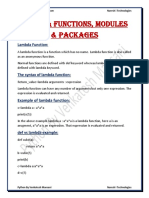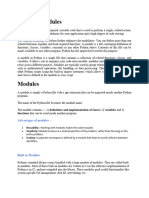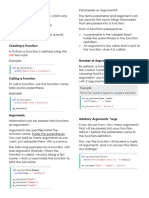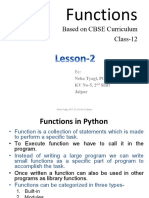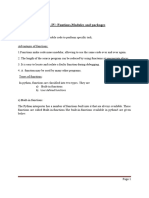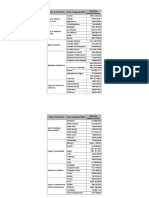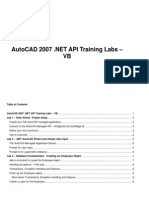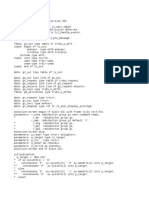0% found this document useful (0 votes)
81 views18 pagesFunctions, Modules and Packages in Python: N.Venkatesh Asst - Prof of CSE
The document discusses functions, modules, and packages in Python. It defines functions as reusable blocks of code that take arguments and return values. Modules allow the organization of Python code into files while packages are collections of modules. The document covers topics like default arguments, keyword arguments, variable arguments, anonymous functions, importing modules, and user-defined modules.
Uploaded by
AnkurCopyright
© © All Rights Reserved
We take content rights seriously. If you suspect this is your content, claim it here.
Available Formats
Download as PDF, TXT or read online on Scribd
0% found this document useful (0 votes)
81 views18 pagesFunctions, Modules and Packages in Python: N.Venkatesh Asst - Prof of CSE
The document discusses functions, modules, and packages in Python. It defines functions as reusable blocks of code that take arguments and return values. Modules allow the organization of Python code into files while packages are collections of modules. The document covers topics like default arguments, keyword arguments, variable arguments, anonymous functions, importing modules, and user-defined modules.
Uploaded by
AnkurCopyright
© © All Rights Reserved
We take content rights seriously. If you suspect this is your content, claim it here.
Available Formats
Download as PDF, TXT or read online on Scribd
/ 18
